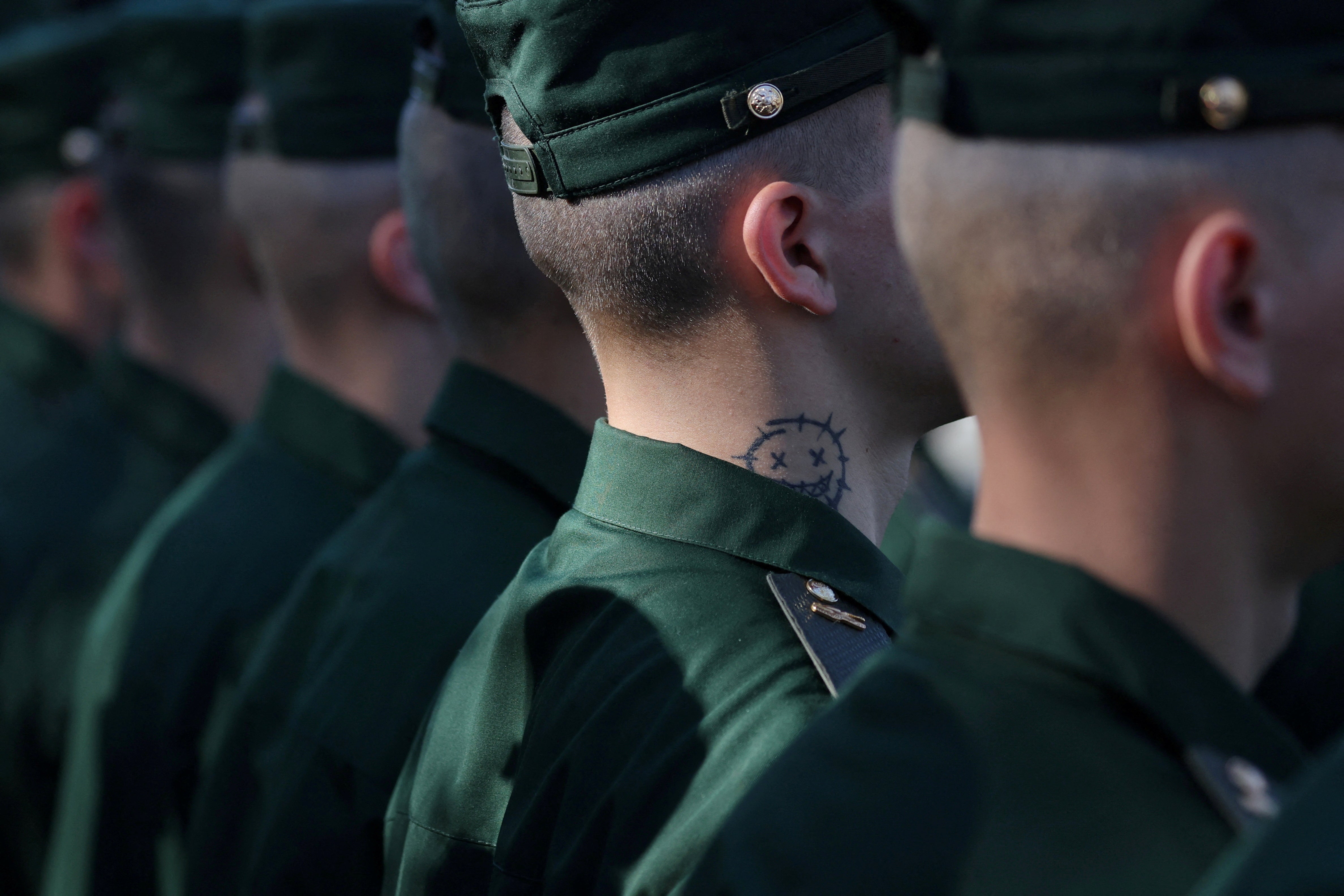Nato suspends key Cold War-era armed forces treaty after Russia withdraws
The Treaty of Conventional Armed Forces in Europe is aimed at preventing the massing of forces at or near mutual borders

Nato has announced the formal suspension of a key Cold War-era armed forces treaty in the wake of Russia withdrawing from the deal.
The alliance said that members who signed the Treaty of Conventional Armed Forces in Europe are now freezing their participation in the pact.
Most of Nato’s 31 member states have signed the treaty, which was aimed at preventing Cold War rivals from massing forces at or near mutual borders. The treaty is one of several major Cold War-era treaties involving Russia. the United States and other Western nations that have lapsed in recent years, a trend that has accelerated since Moscow’s invasion of Ukraine last year.
It was signed in November 1990, but not fully ratified until two years later.
Nato said “a situation whereby allied state parties abide by the treaty, while Russia does not, would be unsustainable”.
Russia’s foreign ministry announced earlier on Tuesday that Moscow had finalised its withdrawal.
The long-expected move came after both houses of the Russian parliament approved a bill proposed by President Vladimir Putin denouncing the treaty, known as CFE. Mr Putin signed the bill into force in May this year.
Russia suspended its participation in 2007, and in 2015 announced its intention to completely withdraw from the agreement.
In February last year, Moscow invaded Ukraine, sending hundreds of thousands of Russian troops into the neighbouring country, which also shares borders with Nato members Poland, Slovakia, Romania and Hungary.
Russia’s foreign ministry said the process of the formal withdrawal from the treaty had been completed, without elaborating on what that entailed. It blamed the US and its allies for the withdrawal and the West’s allegedly “destructive position” on the treaty, with Moscow having taken an increasingly hostile position towards agreements with the West as its invasion of Ukraine has ground on.
“We left the door open for a dialogue on ways to restore the viability of conventional arms control in Europe,” the ministry claimed. “However, our opponents did not take advantage of this opportunity.”
The statement further said that “even the formal preservation” of the treaty has become “unacceptable from the point of view of Russia’s fundamental security interests”, citing developments in Ukraine and Nato’s recent expansion.
In Brussels, Nato said its allies who had signed up to the pact “intend to suspend the operation of the CFE treaty for as long as necessary, in accordance with their rights under international law”.
The alliance underlined that its members remain committed “to reduce military risk, and prevent misperceptions and conflicts”.
Nato said its members will continue to “consult on and assess the implications of the current security environment and its impact on the security” of the alliance.
Meanwhile, on the ground in Ukraine, Kyiv is said to have fired drones over the Black Sea and Crimea – occupied by Moscow’s forces – with Russia saying they had been shot down. Ukraine has repeatedly attacked Crimea and the Russian ships in the Black Sea as part of its push to destabilise Moscow’s forces as it continues with an offensive to reclaim land in the south and east of Ukraine.
Elsewhere, an assistant and “close friend” to Ukraine’s military commander-in-chief was killed in an explosion at his home after he took a grenade he received as a birthday gift away from his child, officials said.
Major Hennady Chastyakov, 39, returned home on Monday night with birthday gifts he had received from his colleagues. They included a box of Western-manufactured grenades he was showing to his son, Ukraine’s interior minister Ihor Klymenko said on Telegram.
“The son first took the munition in his hand and began to twist the ring. Then, the serviceman took the grenade from the child and pulled the ring, causing a tragic explosion,” Mr Klymenko said, terming it an accident.
Join our commenting forum
Join thought-provoking conversations, follow other Independent readers and see their replies
Comments
Bookmark popover
Removed from bookmarks